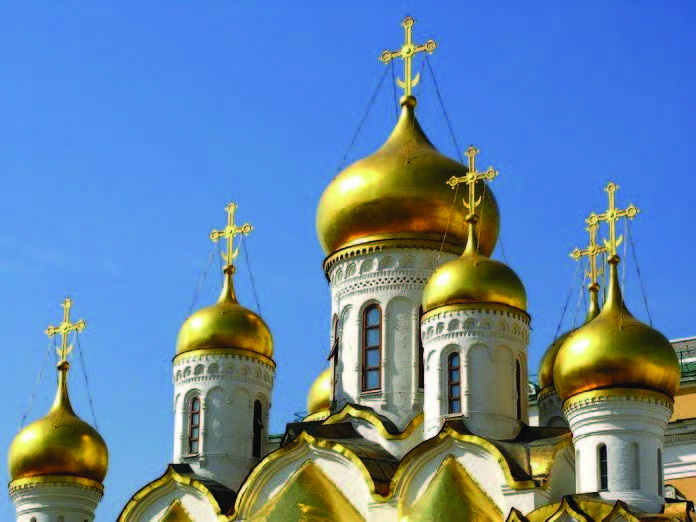
Close ties to the current political regime and centralization of the church leadership under Patriarch Kirill are likely to lead to a serious loss of influence for the Russian Orthodox Church (ROC) in the long term, writes Oleg Kurzakov, a Russian journalist, teacher, and former priest. from 2012 to 2017, in Religion und Gesellschaft in Ost und West (December). While the religious freedom of the 1990s changed the situation for the church, it also allowed a variety of religious groups to compete for Russian souls. This soon led the ROC to adopt a protectionist attitude based on the claim that Orthodoxy is one of the fundaments of Russia. Since the 2000s, the state has been glad to provide support to the ROC in order to fill the ideological void left by the fall of the Soviet regime. But this has given the church a role disproportionate to its real strength—since only a small percentage of the Russian population actually attends church services on a regular basis—and made it dependent on state support for such projects as the construction of very large churches in recent years.
Although the election of Patriarch Kirill in 2009 gave rise to hopes of practical reforms, it instead led to a concentration of power within the patriarchate itself, with the development of a. centralized church bureaucracy in an effort to make sure that bishops could not develop their own power base. According to Kurzakov’s analysis, what would seem to be a strength is actually a weakness, since it has left little flexibility for dealing with various issues at lower levels and
Source: Orthodox Times.
might ultimately lead to a crisis for the church leadership. Kurzakov also sees a “crisis of traditionalism,” arguing that the attempt to initiate a spiritual renaissance through the imitation of prerevolutionary Russian traditions, although it may have seemed to offer a safe haven to faithful facing the uncertainties of a post-Soviet society, cannot lead to a renewal in church life. But the major threat for the future position of the ROC, according to Kurzakov, remains its strong association with the current political regime. A regime change in Russia could become a disaster for the church, bringing it down to its real level of influence and leaving it unable to play a significant role in society. More immediately, the current difficulties in Russian economic life are already having a strong impact on many parishes. In the long term, the author concludes, the authoritarian models of state and church in Russia are doomed.
(Religion und Gesellschaft in Ost und West – Institut G2W, Bederstrasse 76, 8002 Zurich, Switzerland – https://www.g2w.eu)